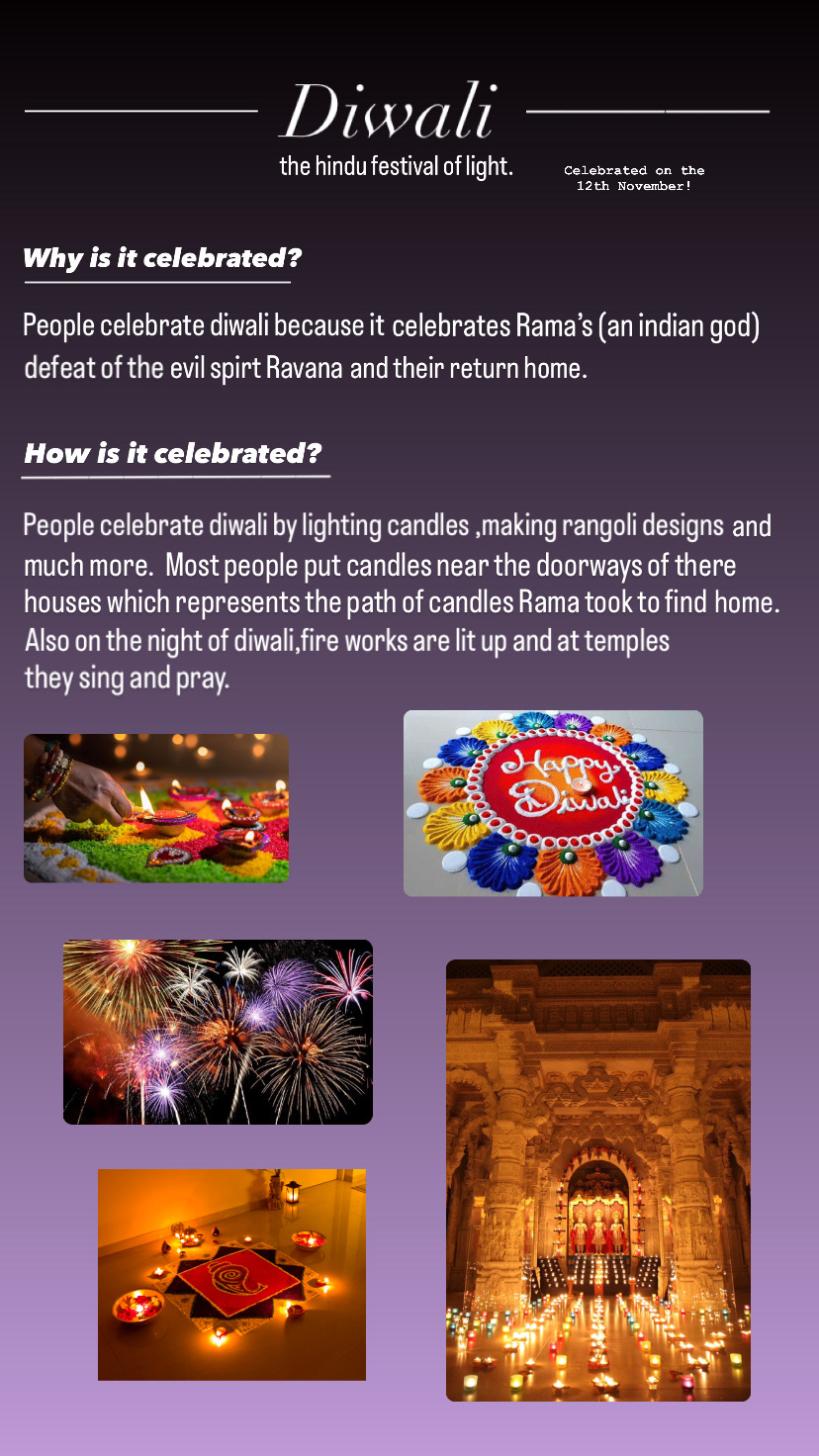How do Priory pupils celebrate Diwali?
9 November 2023
.jpg)
Over the coming weekend, many of our families will be celebrating Diwali. Diwali is the five-day Festival of Lights, celebrated by millions of Hindus, Sikhs and Jains across the world. Diwali symbolises new beginnings and the Hindu New Year plus the triumph of good over evil and light over darkness.
When is Diwali?
Diwali is usually celebrated in October or November - the exact date is determined by the Hindu lunar calendar. This year it will fall on Sunday, 12 November and will last for five days around that date, starting on Friday, 10 November and ending on Tuesday, 14 November.
Where does the word Diwali come from?
Diwali comes from the Sanskrit word deepavali, meaning 'rows of lighted lamps'. Houses, shops and public places are decorated with small oil lamps called diyas. People also enjoy fireworks and sweets too, so it's really popular with children.
Traditions
- Many lights and oil lamps are lit on the streets and in houses
- People visit their relatives and have feasts
- Fireworks and festivities are an essential part of the occasion
.png)
- Lakshmi, the Hindu goddess of wealth, is worshipped as the bringer of blessings for the new year
Head of ICT, Mrs Qadri, asked some of our pupils how they celebrate Diwali.
.png) Arjuna P, Year 7, said, "On dhanteras, we wash coins and we apply a red dot using vermillion powder to show gratefulness that we have money and show respect for it.
Arjuna P, Year 7, said, "On dhanteras, we wash coins and we apply a red dot using vermillion powder to show gratefulness that we have money and show respect for it.
"We also light fireworks and sparklers in our garden to celebrate the festival of light to bring in the new. Traditionally, we invite friends and family around to celebrate by eating special Diwali treats."
Arjuna also sent us two photos of his family's decorations and a PowerPoint explaining more about the five day festival.
Shreya P, Year 9, has put together this presentation graphic to share with everyone>>

Tags: Learning for Life Personal Development Equality and Diversity
